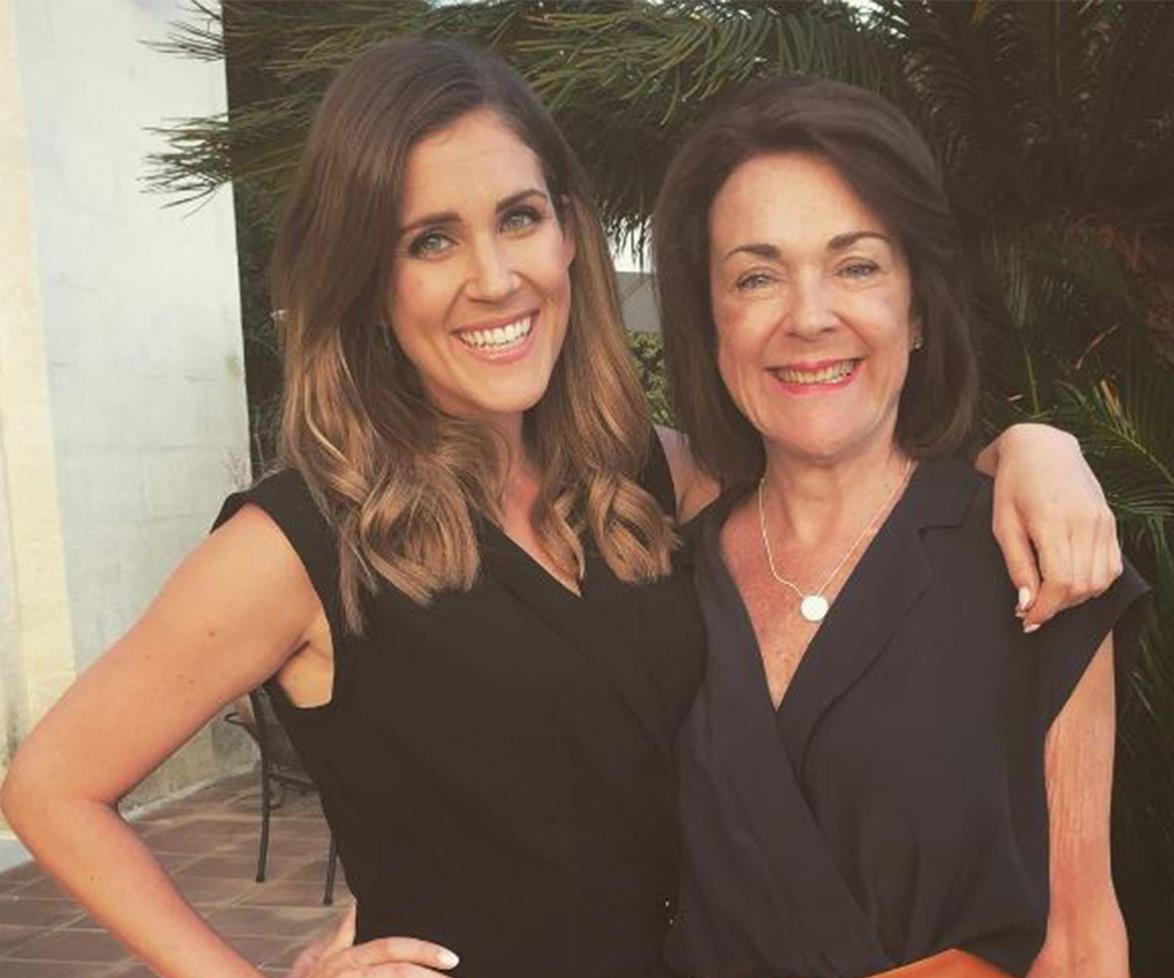Like any form, pancreatic cancer closely affects those around us.
Earlier this month, after finally finding the love of her life, following the inspiration of her mother and father’s undying connection, The Bachelorette‘s Georgia Love lost her hero to the fifth most common cause of cancer deaths in Australia.
Just days after the nation witnessed the journalist’s happy Bachelorette ending, Belinda Love passed away in Melbourne after a six-month battle with pancreatic cancer. She was 60 years old.
“My heart is utterly broken. 7 weeks ago we were sipping cocktails in Italy. 7 months ago you weren’t even sick. How is it possible you’re no longer here?” Georgia penned.
“I love you, Mum, and will continue to every single day. If there ever comes a day when we can’t be together, keep me in your heart. I’ll stay there forever,” Georgia’s beautiful tribute concluded.
The lucky-in-love beauty has since shared messages of hope and support for others suffering through the illness that took her mother too soon.
To mark November as Pancreatic Cancer Awareness Month, the 28-year-old has urged fans to share their love and support in finally finding a cure. “Let’s hope the sobering statistic of a 7% survival rate for this awful cancer can be changed,” she encouraged.
WATCH: Georgia Love tells her mum it will be hard being away from her. Post continues after the video…
Now, in medical news that could change the lives of many, patients suffering from pancreatic cancer may soon face better treatment thanks to a hopeful new discovery.
Dr. Reginald Hill, Archibald assistant professor of cancer biology at the University of Notre Dame and researcher at the Harper Cancer Research Institute, focused a new study on the FDA-approved drugs currently being used by pancreatic cancer patients.
“The bulk of a pancreatic cancer tumour is made of approximately 10 per cent cancer cells and 90 per cent supporting cells. Somehow, the supporting cells have figured out how to survive the chemotherapy,” he says.
Dr. Reginald explains how microscopic vesicles, called exosomes (bubbles with genetic material released by cells during chemotherapy exposure), are released from supporting cells, which actually teach the cancer cells how to survive the treatment, resulting in a chemo-resistant tumour.
Until now, most research that aimed to destroy those supporting cells instead resulted in patients experiencing more advanced cancer. “It was like poking holes into the area around the cancer cells and allowing it to spread,” Dr. Reginald says .
But in the revolutionary new research, published in the journal Oncogene, the medical professional was able to increase the efficiency of chemotherapy by blocking the release of exosomes.
The study now suggests that by using an exosome blocker, which is non-toxic, in conjunction with chemotherapy, patients will have new hope in their treatments.
In 2016 alone, over 3,000 Australians will be diagnosed with pancreatic cancer. Of those, seven per cent are expected to survive the next five years.
Such a shockingly low survival rate comes from the cancer often being diagnosed at such a late stage, which is why prevention has never been so important.
While early stages of pancreatic cancer often show little to no symptoms, you should visit your GP if you start to notice:
Pain in the upper abdomen
Loss of appetite
Nausea and vomiting
Weight loss
Changed bowel motions – either diarrhoea or severe constipation
Jaundice (yellowing skin and eyes, and dark urine).
To find out more or to undergo a screening for pancreatic cancer, visit your trusted GP today.


